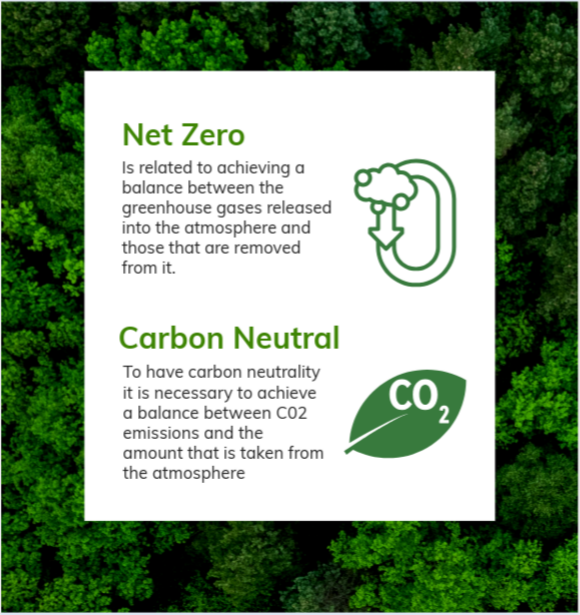
30 April 2024
Net Zero vs Carbon Neutral: Understanding the differences
Both concepts share similarities and, in the end, the same mission: to mitigate climate change by reducing greenhouse gas emissions. However, is carbon neutral the same as net zero? There are differences between them, and understanding these differences, is essential to develop the best strategies.
March 2024 was the 10th warmest consecutive month on record. Scientists attribute this to climate change. In recent months, we have witnessed several extreme phenomena: high temperatures for the time of year, heavy rainfall that causes severe flooding, snowstorms that disrupt the daily life of societies. It is imperative to take action as most of the time, these phenomena are linked to climate change.
Companies all over the world have chosen sustainability as one of their priorities, and BBVA is one of them.
In the fight against climate change, two concepts have gained momentum. The first is Carbon Neutral and the second is Net Zero. Is Carbon Neutral the same as Net Zero? Both concepts aim to mitigate the impact of greenhouse gas emissions on the environment, yet there are a few differences:
 |
|
It is important to understand that achieving net zero emissions is critical to mitigating climate change , but also, Carbon neutrality is very important to stop the rise of the temperatures across the globe and try to avoid catastrophic environmental consequences. Therefore, transitioning to Net Zero emissions fosters innovation and drives investment in renewable energy sources, leading to a cleaner and more resilient economy, and forces the company also to invest in carbon neutral processes.
Thus, the commitment of financial entities to provide resources to companies is essential to embrace Net Zero and Carbon neutrality. This demonstrates global responsibility and solidarity in combating climate change.




